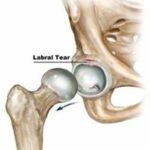Knee Replacement Surgery
Let’s be honest, aching knees aren’t just a minor nuisance. They mess with your sleep, your stroll, and even your sanity. Whether it’s climbing stairs or just standing up from the couch, every little movement becomes a test of patience. Sound familiar?
That’s where it comes waltzing in like a knight in shining armor or more accurately, a surgeon with a titanium implant. But here’s the thing: Is this procedure the miracle fix it’s hyped up to be? Or are there a few strings attached?”
Grab a comfy seat (if your knees will let you), and let’s dive into the real scoop on Knee Replacement Surgery warts, wins, and everything in between.
What Is Knee Replacement Surgery?
Alright, let’s cut through the jargon.
Knee Replacement Surgery, also known as knee arthroplasty, involves removing the damaged parts of your knee joint think cartilage and bone and replacing them with shiny new parts made of metal and plastic. It’s like upgrading your worn-out tires, but for your knee.
This procedure is commonly used when:
- Arthritis has wrecked your knee joint
- You’ve had a nasty injury
- Pain has become your daily companion
- Your knee has given up on functioning like it used to
Whether it’s total or partial, the goal is the same: bring back mobility and ditch the pain.
Who’s a Good Candidate for Knee Replacement Surgery?
Spoiler alert: not every cranky knee needs a new part.
You might be a good candidate if:
- Your pain is constant, even at rest
- You’ve tried everything meds, physiotherapy, injections and nothing works
- Your mobility is severely limited
- You’re healthy enough to handle surgery and rehab
The decision isn’t taken lightly. A good orthopedic surgeon will assess your medical history, do some imaging tests, and chat with you about what to expect.
Types of Knee Replacement Surgery
Yep, it’s not a one-size-fits-all deal. There are a few types of procedures:
1. Total Knee Replacement (TKR)
The most common type. Both sides of your knee joint are replaced. It’s like a full renovation.
2. Partial Knee Replacement (PKR)
Only the damaged part gets replaced. Less invasive, quicker recovery but not for everyone.
3. Kneecap Replacement
Just the underside of the kneecap gets a makeover. Rare, but useful for some.
4. Complex/Revision Knee Replacement
For folks who’ve already had a replacement but need a redo. Think of it as a second chance knee.
What to Expect Before, During, and After Surgery
So, what’s the roadmap look like?
Before Surgery
- Prep Time: You might do pre-hab (yep, that’s pre-surgery rehab) to strengthen your knee and improve recovery.
- Tests & Check-ups: Blood work, X-rays, maybe even a heart check your body needs to be surgery-ready.
- Prep Your Home: Think grab bars, raised toilet seats, and maybe a recliner. You’ll thank yourself later.
During Surgery
- The procedure usually takes 1-2 hours
- You’ll be under spinal or general anesthesia
- Surgeons make the cut, remove damaged bits, insert the new parts, and stitch you back up
After Surgery
- Hospital stay: 1–3 days (depending on how things go)
- Physical therapy starts the very next day
- Full recovery? Anywhere from 3 to 6 months, sometimes longer
Life After Knee Replacement Surgery: Real Talk
Okay, here’s the thing. Knee Replacement Surgery is not a magic switch. It’s more like hitting reset, and your body needs time to reboot.
What changes?
- Pain Relief: Most people experience a significant drop in pain
- Mobility Boost: Walking, climbing stairs, and even dancing might become possible again
- Physical Therapy: Not optional your success hinges on it
- Lifestyle Adjustments: High-impact sports may be off the table, but you’ll be moving again without grimacing every step
Top 7 Recovery Tips
Stick to Your Rehab Plan – Skipping exercises? Big mistake.
- Keep It Moving – Walking (with support) helps circulation and healing.
- Ice, Elevate, and Rest – Helps reduce swelling and pain.
- Eat Well – Nutrients = faster healing.
- Listen to Your Body – Pushing too hard too soon can backfire.
- Avoid High-Impact Activities – Say no to running or jumping.
- Stay Positive – Recovery is a marathon, not a sprint.
The Role of Physiotherapy in Knee Replacement Surgery
Now, here’s where things get serious. You could have the best surgeon in the world, but if you skip physio, you’re in trouble.
Pre-Operative Physiotherapy (Prehab):
- Strengthens the muscles around your knee
- Speeds up post-op recovery
- Helps you learn how to use crutches or walkers
Post-Operative Physiotherapy:
- Helps restore full range of motion
- Improves balance and strength
- Reduces stiffness and prevents complications
Basically, your physiotherapist becomes your new best friend post-surgery.
FAQs
- Is Knee Replacement Surgery painful?
You’ll feel sore afterward, but pain management is part of the plan. Long-term, pain relief is one of the biggest benefits. - How long will the artificial knee last?
Typically 15–20 years, depending on your activity level and overall health. - Can I walk right after surgery?
Yes, with help. Most people start walking (using support) within 24 hours. - Is there a risk of complications?
Like any surgery, yes. Infection, blood clots, or implant issues can happen, but they’re rare with proper care. - Will I need surgery on both knees?
If both knees are bad, sometimes surgeons recommend one at a time. It depends on your health and pain levels.
Conclusion:
Knee Replacement Surgery isn’t just about getting rid of pain it’s about getting your life back. Whether it’s chasing grandkids, going on that long-postponed vacation, or simply walking your dog without wincing, it opens the door to a new level of freedom.
But here’s the kicker: it takes commitment. From rehab to lifestyle changes, you’ve gotta put in the work. If you do? The rewards can be truly life-changing.
So, is it worth it? If you’re ready to swap pain for potential and stiffness for strength, then heck yes it just might be.











